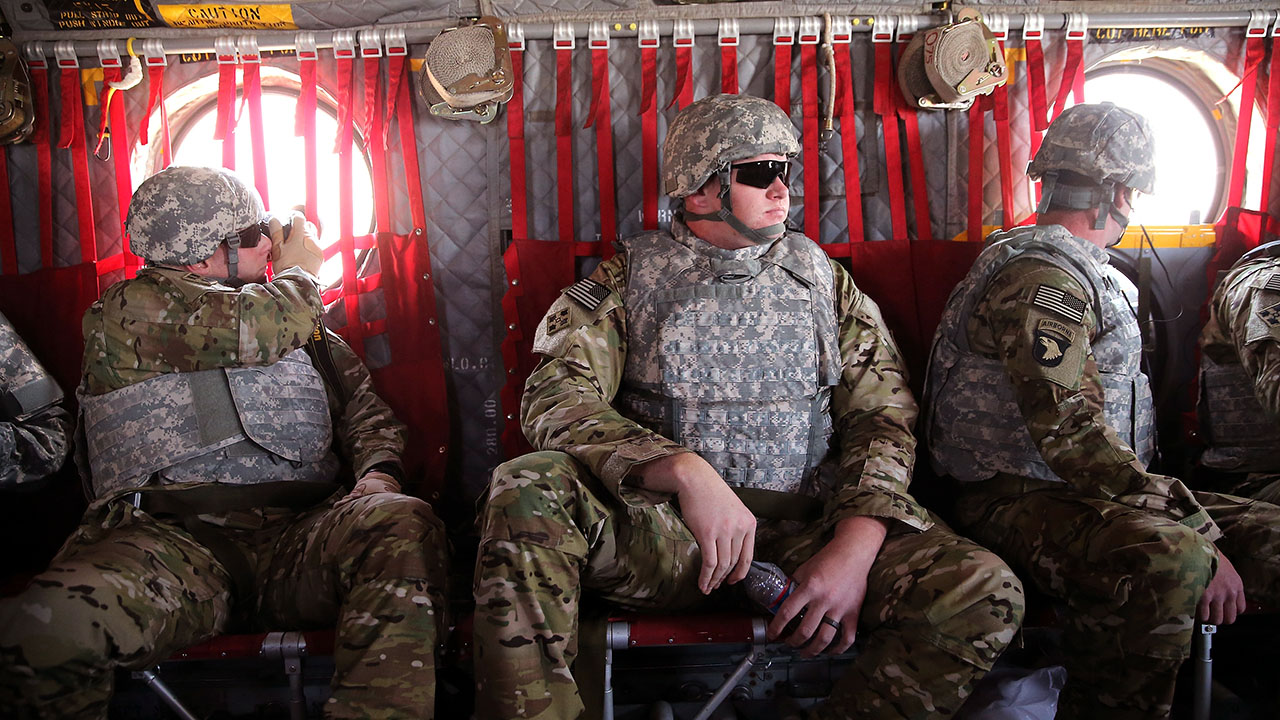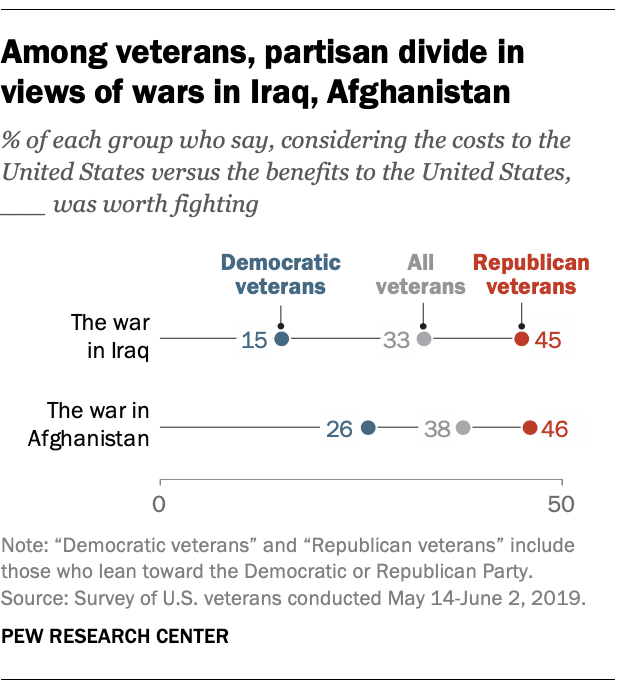The president should be wary of a one-sided peace deal.
Macgregor states:
"There is no attainable compromise between Israelis and Palestinians in the Near East. A Muslim Leader in the Near East who is powerful enough to lead the charge for peace and to survive the religious and political fallout of making a lasting peace with Israel does not currently exist. Sadat died for it, Mubarrak spent much of his time in power atoning for it in mosques, and Jordan’s Hashemite Rulers survived thanks to massive Israeli, US and UK support. Today, the Hashemite grip on power in Jordan is extremely fragile.
A “Palestinian” leader can “discuss” or “negotiate” peace, and even sign agreements because no Muslim is bound under the Qur’an and sharia to keep agreements with non-Muslims that are not beneficial to Muslims. At the same time, no “Palestinian” leader can deliver on a promise of peace as long as there is a Jewish state in the once Muslim-dominated Near East to attack.
Thus, “Mideast peace” is a dangerous mirage; an illusion made to seem real by the exhaustion and thirst of those hunting for it. Muslim Arabs and Turks remain willing and able to continue sacrificing generations of Sunni Muslim lives to achieve eventual victory and drive the last vestiges of non-Muslim power out of the region. They have largely expelled Christians from across the region, and reduced the once substantial [though dhimmified] Christian minorities of Egypt, Syria, and Iraq to brittle remnants of what they were just a generation ago."
https://freebeacon.com/blog/even-some-of-israels-greatest-supporters-dont-get-the-middle-east-conflict/
David Isaac - AUGUST 26, 2019 10:45 AM
Never has a U.S. administration been so favorable to Israel. And Israeli Jews are full of gratitude—anything good earns a Trump comparison: "It’s No. 1, like Trump," an Israeli grocer told me the other day, pointing to an especially well-regarded mango.
Yet the Trump administration, like those before it, either doesn’t grasp, or won’t face, the truth about the Arab-Israeli conflict. Today, perhaps, the individual most voluble in telling the truth about the conflict is Prof. Mordechai Kedar, a lecturer on Arabic and Middle East studies at Bar-Ilan University.
His message is straightforward: Islam cannot accept a Jewish state in the Middle East, "not even a tiny one on the Tel Aviv coast." It’s a theological threat. Jews and Christians do have a protected status under Muslim rule "by becoming subservient to Islam in what is known as dhimmi status, which means they are legally deprived of many rights including the right to own land and bear arms," he writes.
Although this has been said many times, many ways, over the years, it fails to find an ear in America’s halls of power, partly because it’s foreign to modern Western ideas, partly because of well-oiled Arab propaganda and partly because it’s resisted by the conflict resolution industry (intractable religious problems leave it no part to play). And, partly, because Israel can’t face it either.
The iconoclastic Trump administration held out the greatest hope of seeing the conflict for what it was. Instead, only a few days after his election, Trump called Mideast peace the "ultimate deal" in a Wall Street Journal interview. (Apparently, Trump never said "deal of the century." That came later, a likely mistranslation of comments made by Egyptian president Abdel-Fattah el-Sissi during a meeting with Trump.)
The president put his son-in-law Jared Kushner in charge of the Mideast peace team, which began working in earnest in November 2017. The economic part of the deal, unveiled in Bahrain in June, shows that Trump is serious. The plan is highly detailed—two pamphlets of 40 and 96 pages each—offering a $50 billion investment fund for 179 business and infrastructure projects.
Kushner later held a conference call with Arab media, in which he said, "I have a lot of respect for President Abbas, he’s devoted his life to making peace, he’s suffered some setbacks along the way. I believe in his heart he wants to make peace, and that we can give him an opportunity to try to achieve that."
To say that the Palestinian Authority’s Mahmoud Abbas has been working for peace is a stunning upending of reality. It was only two months earlier, in April, that Abbas admitted the Palestinian Authority was behind all the terrorism coming out of its midst.
"Israel needs to understand this. It is impossible to send a soldier to war and then not take care of his family. We are talking about someone who acts on our behalf and receives orders from us," Abbas said, explaining why the PA must pay terrorists and their families.
These are terrorists who stab civilians and run teenagers down with cars. The terrorists who threw an explosive, killing a 17-year-old Jewish girl on Friday and badly injuring her father and brother, will be well remunerated. When faced with Israel’s withholding of a portion of its taxes as a result of its terror payments, the PA reacted by increasing such payments in the first five months of 2019. At the same time, it cut payments to civil servants. The PA had to cut somewhere, but funding terror comes first.
Yet, we are to believe that Abbas is a man who’s "devoted his life to making peace."
Magnifying the problem is Trump’s apparent faith in his own personal diplomacy. It manifests itself in his dealings with North Korea’s Kim Jong-un. Trump probably hoped to work his charms on Putin, as well, and he’s certainly trying with Abbas, of whom, according to Kushner, he is "very fond."
As Clifford May wrote in the Washington Times in March, "The comforting notion that skilled diplomats bearing gifts and not baring their teeth can seduce and reform those who threaten us may be the most important thing we know that simply isn’t so."
The Trump administration has even less excuse than prior administrations for its Mideast peace pursuits as it has the benefit of their experience. Peace efforts by Presidents Clinton, Bush I and II, and Obama all ended in failure. The Trump team can also look on the fate of several generous Israeli offers, which ended in disaster, including under Prime Ministers Ehud Barak (92 percent of West Bank) and Ehud Olmert (93 percent of West Bank).
The Trump administration argues that the United States should at least try to make peace. "We'll see what happens," Trump said of the process. "We're doing our best to help the Middle East."
The trouble is that in this case helping hurts. The deal’s political aspects haven’t been revealed, but Israel is rightly nervous. With the plan expected to be dropped shortly after Israel’s elections, the Netanyahu government released its "red lines" last week—no more uprooted settlements and an undivided Jerusalem among them.
In July, Israeli media reported that the Trump plan calls for a land corridor linking the Gaza Strip with the Palestinian Authority. It would be better called a terror corridor. Israel’s internal security services revealed recently that Hamas, more or less confined to the Gaza Strip, is pushing to create terror cells in the West Bank. An unrestricted land corridor, effectively cutting Israel in two, would make the job that much easier.
If Israel is nervous, Jordan is even more so. King Abdullah fears that the peace deal will make changes to Jordan’s status on the Temple Mount. Its control of the Muslim holy sites there is what gives the kingdom its religious legitimacy. Abdullah also fears the deal will propose some sort of confederation between the kingdom and the West Bank, which would undermine Hashemite rule and turn Jordan into a "de facto" Palestinian state.
In fact, when it comes to the conflict between Israel and the Palestinians, the only thing worse than trying for an agreement is succeeding in making one. The Oslo Accords were a catastrophe for Israel. Land was handed over to a terrorist entity that proceeded to kill nearly 2,000 Jews in attacks the likes of which Israel had never seen. The Oslo process eventually led to Israel’s withdrawal from the Gaza Strip, which has exposed the country’s south to incessant rocket attack and the torching of thousands of acres of fields. With one such "peace agreement," can Israel survive two?
Trump could end this madness with a tweet. He isn’t overly invested.
Confronted with Secretary of State Mike Pompeo’s remarks that a deal may be "unexecutable," Trump responded quite simply that he "may be right." Just last week, on August 18, Trump said, "It is tough to make a deal when there is that much hate."
Such comments could swiftly lead to the exits. "Hey folks, we got it wrong. One side isn’t interested in peace." It would mean an end to the painful tradition of one administration after another jousting at the same peace windmills.
Lies can sow enormous suffering. But they’re also like balloons. Sometimes it just takes a pinprick.


 Views do differ significantly by party, however. Republican and Republican-leaning veterans are much more likely than veterans who identify with or lean toward the Democratic Party to say the wars in Iraq and Afghanistan were worth fighting: 45% of Republican veterans vs. 15% of Democratic veterans say the war in Iraq was worth fighting, while 46% of Republican veterans and 26% of Democratic veterans say the same about Afghanistan. The party gaps are nearly identical among the public.
Views do differ significantly by party, however. Republican and Republican-leaning veterans are much more likely than veterans who identify with or lean toward the Democratic Party to say the wars in Iraq and Afghanistan were worth fighting: 45% of Republican veterans vs. 15% of Democratic veterans say the war in Iraq was worth fighting, while 46% of Republican veterans and 26% of Democratic veterans say the same about Afghanistan. The party gaps are nearly identical among the public.
